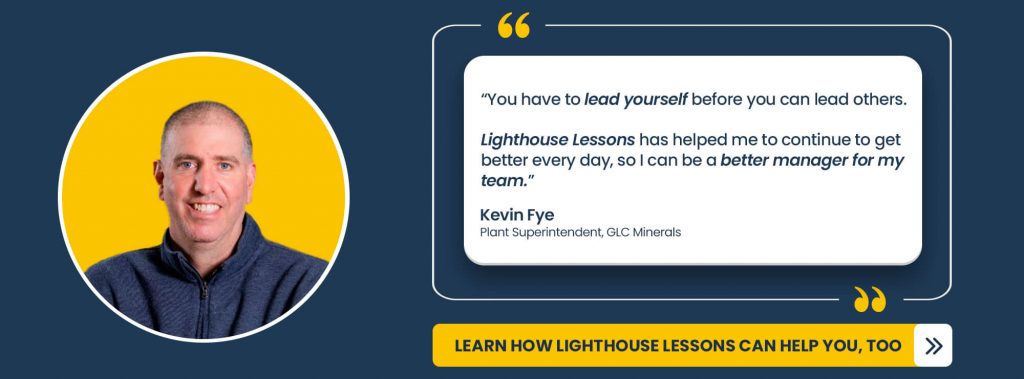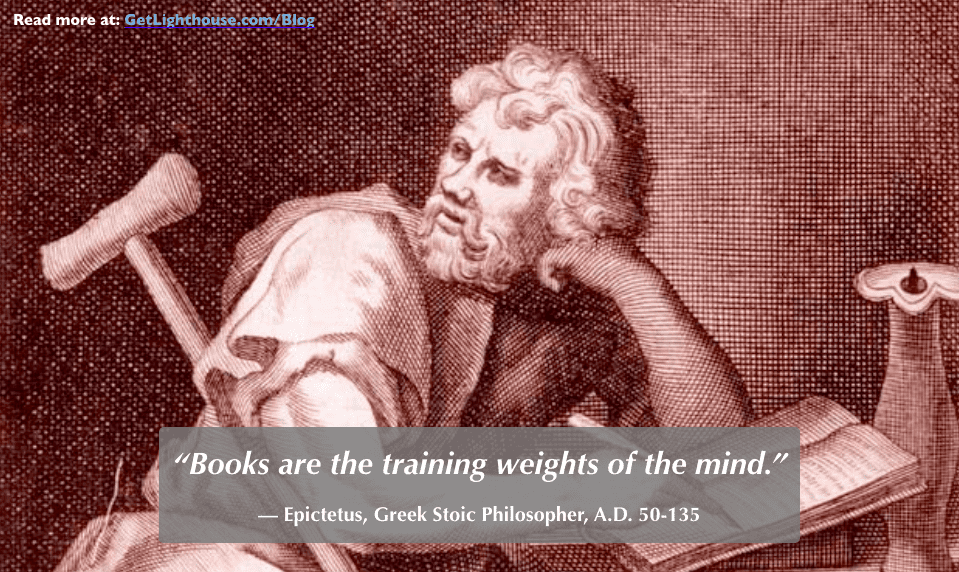"What do I do now? Where do I even begin???"
If your company has a group of new managers, then it's very likely many of them are thinking the above.
Whether you were left to flounder when you started being a manager or you had some great help, there's a lot you can do to help them succeed as a senior leader.
One of the best ways is to gift them a great book (or a few). The right book can teach a manager essential skills they can apply every day, and give them insights and lessons that would take you hours or days to teach them on your own.
That's why today we're sharing some of the best books for first-time managers from our own favorites, whether for you to read or share with a new manager you want to help.
Trust us, we take these recommendations seriously
We’ve read hundreds of books, so we know how frustrating a poorly chosen book can be. It can almost feel like a punishment, because you feel obligated to read it, yet constantly wish you were doing something else instead.
This is especially true if your manager is who gave you the book.
That's why we take these recommendations seriously. The books below have been carefully chosen to help new managers develop critical skills.
In this post, we explain why each book is helpful, so you can decide if it aligns with the needs of the manager you wish to help. With leadership development as the goal, we aim to give the gift of growth – not frustration.
Table of Contents: The 12 Best Books for New Leaders
- Part 1: Timeless Resources
- How to Win Friends and Influence People by Dale Carnegie
- High Output Management by Andy Grove
- Atomic Habits by James Clear
- Never Split the Difference by Chris Voss
- Own the Room by David Booth, Deborah Shames, and Peter Desberg
- First, Break All the Rules by Marcus Buckingham
- The Score Takes Care of Itself by Bill Walsh
- The 7 Habits of Highly Effective People by Stephen Covey
- Part II: Modern and Unconventional Guides
- And Further reading to continue your learning beyond books
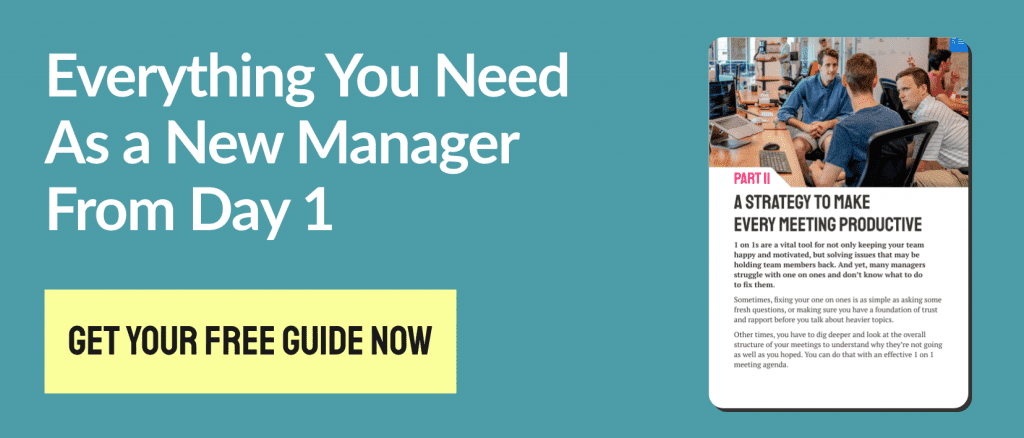
How We Choose the Best Leadership Books for New Managers
So how do you avoid giving a bad book, especially if you haven't read many yourself?
Having read a lot of leadership and management books in particular, here's what separates the best management books for new managers from the rest:
- Short Length: I've never read a 300 page book that couldn't have been a better 200 page book. Saying just the right amount on a point and moving on shows a skill and care many others lack. This is especially true as many authors are on a quest to hit a publisher's page requirement.
- Great Depth: Too many books can have all their concepts covered in a single blog post. The best management and leadership books keep teaching you new insights right until the end, and add nuance to their points beyond overdrawn anecdotes.
- Timeless: As philosopher Nassim Taleb writes, the best books are more than 20 years old; that means that the ideas are not just a fad, but work long term. There are more recent exceptions to this, but we'll talk about those later.
Once you apply this filter, a lot of books are disqualified. In fact, there are just a few main books we're recommending, along with several other more recent additions that are particularly well-suited for modern managers.
Together, they cover the most important skills and concepts a new manager needs to get right from Day 1 to succeed.
So whether you're a friend trying to help, or in HR and supporting new managers, you are on the right track by offering any of these books on management as a gift.

The 12 Best Books for New Managers, Part 1: Timeless Resources
Becoming a manager is more than a promotion. It's a career change.
With the new responsibilities of motivating, growing, and leading others, there's a lot to learn at once.
Unfortunately, there's no time to learn by trial and error; you're talking about the lives of other employees who will thrive, or suffer, based on the new manager's actions. Remember: People leave managers, not companies.
These are seven of the best, timeless books on management available, which can help any manager improve in some of the most important ways that will help them, and their team succeed.
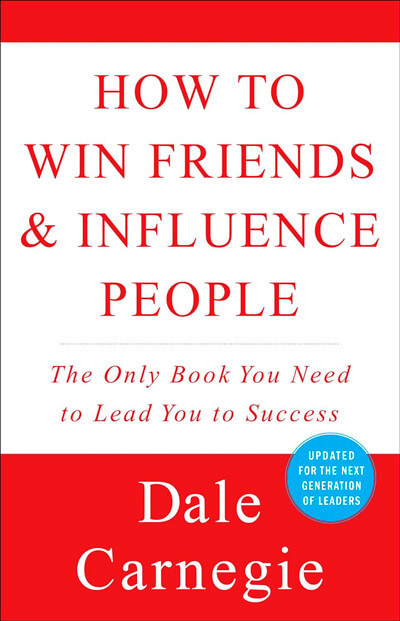
1) Dale Carnegie's "How to Win Friends and Influence People"
| Author | Dale Carnegie |
| Book Title | How to Win Friends and Influence People |
| Year published | 1936 |
| Number of pages | 320 |
| Who it's best for | Leaders who feel they need to improve their soft skills or effectiveness with motivating people. |
| What you will learn | How to understand people's motivations and perspectives, influence them positively, and accomplish goals by working cooperatively with others. |
One of the cruel challenges of being a leader is that many of our basic instincts are wrong. Bossing people around, assuming the worst, and believing everyone thinks like us are some of the easiest rookie mistakes to make. Fortunately, Dale Carnegie is here to help.
How to Win Friends & Influence People is a classic on leadership. Carnegie breaks down in simple terms many of the most helpful ways to understand others, as well as how to accomplish all that a leader needs to effectively work with their team.
Carnegie can give even the most rigid engineer essential lessons on leading others well.
There are so many great lessons in this book, and here are 4 Dale Carnegie quotes every leader can learn from.
If you want to understand what makes other people tick, how to motivate them and win them over to your way of thinking, there is no better book.
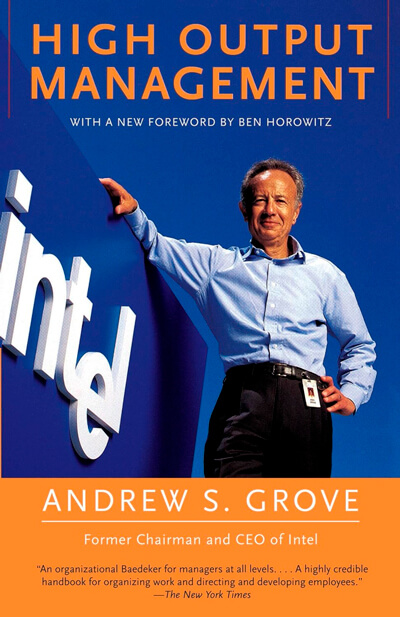
2) Andy Grove's "High Output Management"
| Author | Andy Grove |
| Book Title | High Output Management |
| Year published | 1983 |
| Number of pages | 272 |
| Who it's best for | Leaders who want a foundational understanding of the task and project leadership aspect of managing teams. |
| What you will learn | How to transition from individual contributor to manager, how to think about tasks and projects from a manager’s view, and dealing with common management challenges. |
When you're an individual contributor, work is straight-forward: you're given a task, a problem, or a project to complete. You may collaborate with team members, but in the end, you're in charge of a specific part of it. Ship the feature, close the deal, create the leads, and your work is done.
As a manager, suddenly you have to be a multiplier. You're not just focused on yourself or any one person on your team. Instead, you have to think about how everyone works with each other, and how your team as a whole can perform at its best.
You also have to suddenly deal with people's problems, sit in many more meetings, think more about managing up, and working cross-functionally.
With all these new challenges, even the hardest working new manager is likely to struggle. Fortunately, this is where Andy Grove shines. High Output Management is the perfect book to help with a myriad of these challenges.
We've been a huge fan of High Output Management on the Lighthouse blog since first reading it over 6 years ago. We've quoted Grove countless times, and even devoted two posts specifically to this book, which you can dig into for further reading:
- The 13 best quotes from Andy Grove's High Output Management
- How to have awesome one on ones like Andy Grove
If you want a field guide for being an effective manager, this is one of the single best books for new managers ever written. Grove provides what many go as far as calling the, "Bible for management.”
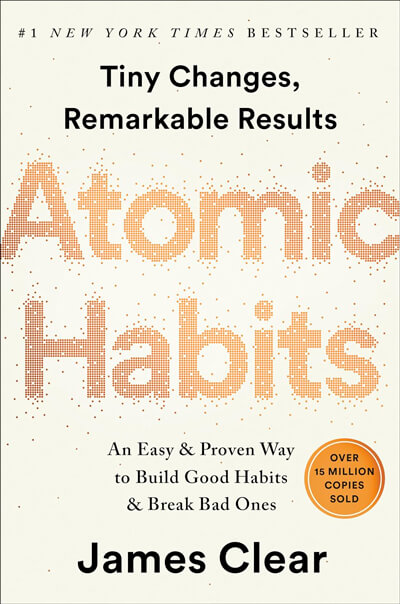
3) James Clear's "Atomic Habits"
| Author | James Clear |
| Book Title | Atomic Habits |
| Year published | 2018 |
| Number of pages | 320 |
| Who it's best for | Anyone who wants to build better habits. |
| What you will learn | Simple systems for creating and sustaining helpful habits and how to identify and break bad habits. |
A key for any manager is to learn new things. As a manager, you want to be a multiplier, and the only way to do that is to be constantly learning and growing.
Atomic Habits is a great book for managers to learn how to build good habits and break bad ones.
As we talked about earlier, becoming a manager is a career change as much as a promotion, so there's a lot you'll need to learn if you want to be a good manager. That means creating the habit of learning and leveling up, as well as breaking bad habits that sit in the way of you being at your best.
Atomic Habits will help you do both of those things. It lays out simple systems and approaches that help ensure you're setting a great example for your team. You can then also teach your team to build good habits, too, multiplying the value of these lessons.
Further reading: Read more on habits and why we like Clear's Atomic Habits in: Lessons from Leaders: Mikey Ahdoot on the Essential Keys to Building Healthy Habits.
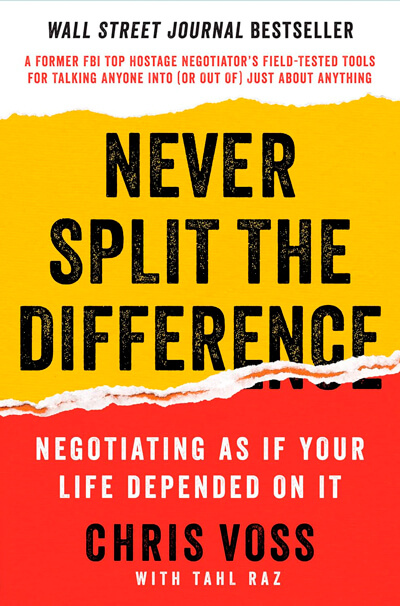
4) Chris Voss' "Never Split the Difference: Negotiating as if Your Life Depended on it"
| Author | Chris Voss |
| Book Title | Never Split the Difference: Negotiating as if Your Life Depended on it |
| Year published | 2016 |
| Number of pages | 288 |
| Who it's best for | Leaders who want to level up their negotiating and communication skills. |
| What you will learn | A thorough approach with specific tactics will help you with both sides of the table of a negotiation, as well as better understanding and communicating with others. |
The further you climb in your career, the more negotiating matters. As a manager, you'll be negotiating constantly:
- With your team: On raises, performance, projects, performance reviews, hiring, and closing candidates.
- With your manager: On your own career, performance, and compensation.
- With your peers: On behalf of your team for resources, projects, and collaboration.
Voss' Never Split the Difference will teach you how to become a better negotiator no matter what situation you find yourself in.
The book has some tactics that could become less effective over time as they become more well known. However, it focuses mostly on the process and mindset you should use when negotiating, which is grounded in the timeless principles of rapport, empathy, and understanding the other person you're negotiating with.
I can personally attest to the effectiveness of applying the approaches and recommendations in the book in various situations. Unlike so many other books I've read, the tactics applied worked exactly as described.
Further reading: A key part of being a good leader or negotiator is asking questions, which helps you create mutually beneficial outcomes. The best post to learn more about that:
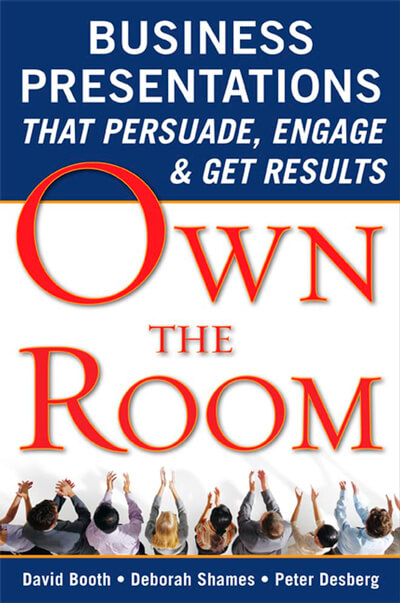
5) Booth, Shames, & Desberg's "Own the Room: Business Presentations that Persuade, Engage, and Get Results"
| Author | David Booth, Deborah Shames, Peter Desberg |
| Book Title | Own the Room: Business Presentations that Persuade, Engage, and Get Results |
| Year published | 2009 |
| Number of pages | 288 |
| Who it's best for | Managers who need to improve presentation skills to persuade, engage with, and influence their team |
| What you will learn | How to develop memorable and persuasive presentations, deliver them effectively, connect with your audience, and master both verbal and nonverbal communication |
Presenting is a key part of being a manager, so it's worth investing time into improving your presenting skills as it will make a lot of things easier:
- It will make you more persuasive
- Help you acquire more resources and opportunities for your team
- Earn the respect of your team, peers, and senior leaders
- And be more confident communicating your ideas
If you want one book to teach you everything you need to know about giving great presentations, this is it.
In "Own the Room”, a film director, psychologist, and actor share their combined experiences to help improve your speaking in every way, including:
- Making your content persuasive
- Keeping your audience's attention & interest
- Being memorable on the key points you want to make
- Moving your body effectively to emphasize your points
- And just about every other detail of being a great speaker.
The book starts slow, but by the end, I had dog-eared dozens of pages and marked up many more that I was able to directly apply to a major talk I was working on at the time.
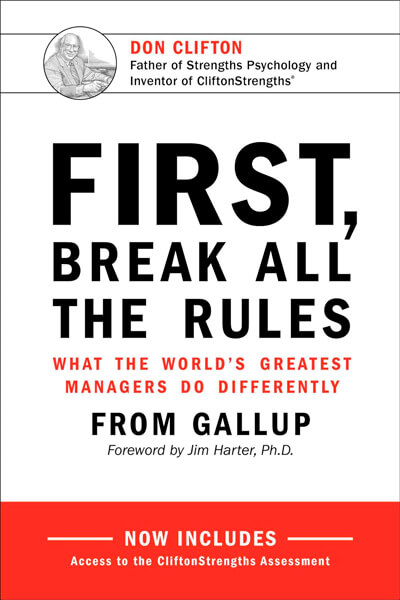
6) Marcus Buckingham's "First, Break All the Rules"
| Author | Marcus Buckingham |
| Book Title | First, Break All the Rules |
| Year published | 1999 |
| Number of pages | 368 |
| Who it's best for | New managers, especially analytical thinkers, looking to lead their teams more effectively |
| What you will learn | Counter-intuitive lessons on how to maximize the productivity, effectiveness, and engagement of your team. |
It's no surprise that Gallup's invaluable insights on management and leadership made this list in book form, from former Gallup leader, Marcus Buckingham.
In "First, Break All the Rules”, Buckingham breaks down dozens of Gallup's most important surveys and studies from over 80,000 managers to distill out some surprisingly unconventional lessons.
Each of these lessons centers around the same idea: What separates a great manager from everyone else?
As it turns out, part of what makes a great manager might not be what you think– and Buckingham has the data to prove it.
In the book, you'll learn:
- The power of focusing on the strengths of your individual team members (and why you should promote based on those strengths, not a lack of weaknesses)
- The importance of a support system for managers
- Why – and how to – invest in your best people
- The importance of developing a personal relationship with everyone on your team
- How to give effective feedback, and more
If one of your managers is just starting out and is a more analytical thinker, the fact that this book uses Gallup's massive stockpile of data as context for all of its tips easily makes it one of the best books for new managers.
Further reading:
- Get a quick summary of the book's best points in our post: 3 Surprising Lessons for Managers from Gallup's Marcus Buckingham in "First, Break All the Rules”
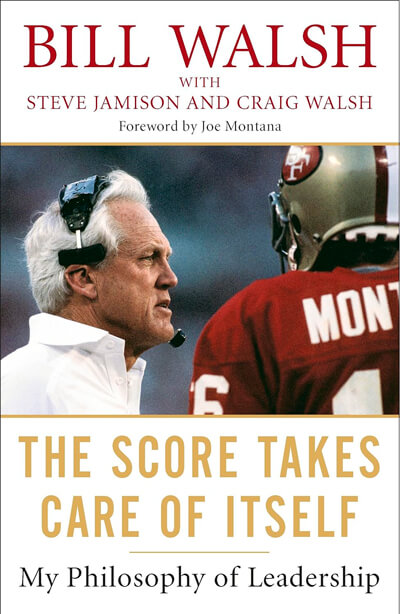
7) Bill Walsh's "The Score Takes Care of Itself"
| Author | Bill Walsh |
| Book Title | The Score Takes Care of Itself |
| Year published | 2008 |
| Number of pages | 288 |
| Who it's best for | Managers who love sports and want to hear timeless lessons from a true legend |
| What you will learn | How to bring out the best in each person on your team through effective coaching techniques that translate from the football field to the office |
Today's managers need to be more than just managers; they need to be coaches who draw out the best from each team member.
And there are few coaches better to learn from than NFL coaching legend Bill Walsh, who not only turned around a failing franchise in the San Francisco 49ers to become a dynasty but then went on to have a hand in the development of dozens of future successful NFL head coaches.
In "The Score Takes Care of Itself”, Walsh opens his toolbox and teaches his most important lessons about leadership (lessons that apply whether you're interested in football or not).
These lessons include:
- Why praise is one of the most valuable tools for any leader
- The value of preparation and planning
- The importance of setting the example (and how that affects your culture)
- The viral nature of enthusiasm (and why it's essential)
- And why the four most powerful words in a manager's arsenal are, "I believe in you.”
"The Score Takes Care of Itself” is great for any leader, whether brand new or very experienced. It will help you learn how to become a better coach to your team and get the most from each of your individual team members.
Further reading:
- Get a quick summary of some of the book's best points: 5 Key Bill Walsh Quotes on Leadership from The Score Takes Care of Itself
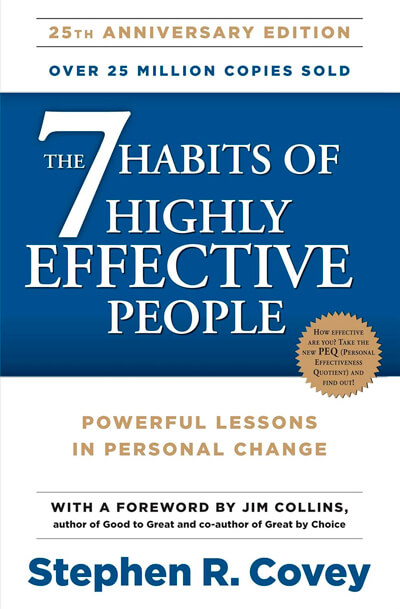
8) Stephen Covey's "The 7 Habits of Highly Effective People"
| Author | Stephen Covey |
| Book Title | The 7 Habits of Highly Effective People |
| Year published | 1989 |
| Number of pages | 391 |
| Who it's best for | Managers who feel they have work to do on their productivity, and how they prioritize their time and efforts |
| What you will learn | Core principles of prioritization, time management, negotiation, leadership, and goal-setting that stand the test of time |
How you spend your time is one of the most important decisions you make as a leader. If you don’t have your schedule and priorities under control, how can you expect anyone on your team to?
I’m a big fan of this book, because it checks so many of the boxes of what I look for in a book:
- Great Depth: Yes, you could Google the 7 Habits, but the detail Covey includes provides so much more insight than simple nodding to the phrase “think win/win” or “put first things, first”. Covey’s writing really helps you understand the nuance, and his intention behind creating the 7 habits and why the order of them matters.
- Timeless: This book was written in 1989, so at over 30 years old, it’s definitely past that line of having advice that lasts.
And most importantly, the advice works. Covey is tackling the kind of high level problems that when you fix them and apply what he teaches, your work life will get *a lot* better.
At its core, it helps you think through prioritization, time management, negotiation, team leadership, and goal setting. They’re the kinds of lessons that only get more important as you rise in an organization.
One note: Make sure you purchase the original edition of the book; the newer, 30th anniversary edition is longer and feels bloated; Stephen’s son has commentary at the end of every chapter that really bulks up an already lengthy book. In my opinion, his comments don’t really add anything to Covey’s thorough chapters

The 12 Best Books for New Managers, Part 2: Unconventional & Modern Guides
Beyond what we consider timeless resources are a few books that are more timely or unconventional: they were written recently, and are helpful guides for leaders in today's technological era, or are less obviously a book for managers, and can still really help you.
These include books about managing your mindset, leading modern engineers, growing venture-backed companies, and supporting your female employees in today's workplace.

9) Don Miguel Ruiz’ "The Four Agreements"
| Author | Don Miguel Ruiz |
| Book Title | The Four Agreements |
| Year published | 1997 |
| Number of pages | 160 |
| Who it's best for | Anyone looking to live a more centered, calm life by practicing fundamental truths |
| What you will learn | How to overcome self-limiting beliefs to become a better leader and communicator; principles to foster happiness, self-acceptance and appreciation |
"The Four Agreements” is a book that teaches you how to free yourself from self-limiting thoughts that can cause you unnecessary fears and frustration. Ruiz uses these teachings to help people overcome their issues and understand those around them better.
As a leader, it's important to have a positive mindset and set a good example, and this is a book that will help you do that.
It’s also a book 7-Time Super Bowl Champion Tom Brady has re-read over 7 times, which is a pretty strong endorsement by itself. We also recommend it because:
- It contains tons of advice you can apply in your everyday work as a leader.
- At only 160 pages long, it’s an easy read, even if you’re a very busy manager.
- While the advice is simple, it is not easy, which means you can revisit it over and over and keep getting new insights and ideas to apply to your life. (Which is why Tom Brady re-reads it)
And like many of our favorite books on this list, it’s timeless. “The Four Agreements” is based on Toltec wisdom from spiritualist Don Miguel Ruiz, and its key ideas still strongly resonate with leaders today. That’s because it focuses on teaching you how to be a better communicator and how to improve your emotional maturity.
“The Four Agreements”, written in 1997, has sold 9 million copies in the US alone and been a Top 10 best seller for over a decade, while being translated to 47 languages.
If you're a leader, it can help you contribute to a company culture of happiness, self-acceptance, and mutual appreciation, because when you have a healthier mindset, you create an environment for your team to as well.
To get a brief taste of some of his most impactful thoughts, be sure to check out our post on the 4 Don Miguel Ruiz Quotes Leaders Must Learn.
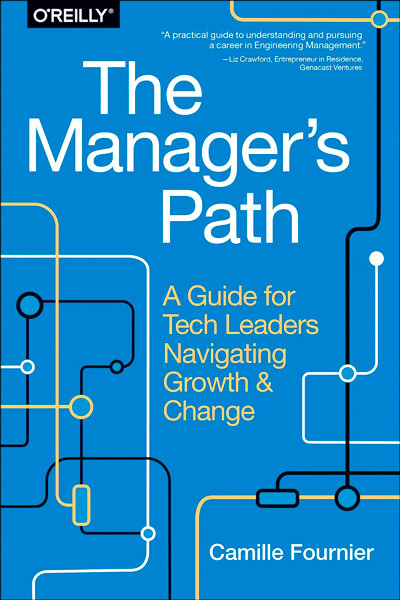
10) Best book for new managers who are engineers: Camille Fournier's "The Manager's Path"
| Author | Camille Fournier |
| Book Title | The Manager's Path |
| Year published | 2017 |
| Number of pages | 241 |
| Who it's best for | New managers with technical backgrounds. Especially good for software engineers looking to be better leaders |
| What you will learn | Key habits that can help technical leaders better connect with their teams and avoid key mistakes |
Fournier's The Manager's Path is ideal for engineers or anyone in a technical profession who has just become a manager, or is rising in the ranks as a technical leader. It takes you through key topics you must know as a new manager all the through becoming a CTO.
Fournier breaks down some of her best tips for becoming a great technical manager, though many of the tips apply to any manager:
- The importance of regular one on ones
- Why you need to be a mentor and coach to your people
- Creating the kind of environment that allows your team to grow and be productive
- The consequences of micro-managing, and what to do instead
Most of the lessons in the book are specific to engineers (especially software engineers), so it may not be as applicable as the software industry changes. However, for software engineering leaders today, this is an incredibly helpful guide.
Further Reading: Read more on Fournier and The Manager's Path in our full post on the book here: 5 Key Lessons from Camille Fournier in The Manager's Path. We also shared guest advice from Fournier in our post, When to Quit Your Job, if You're a Leader.
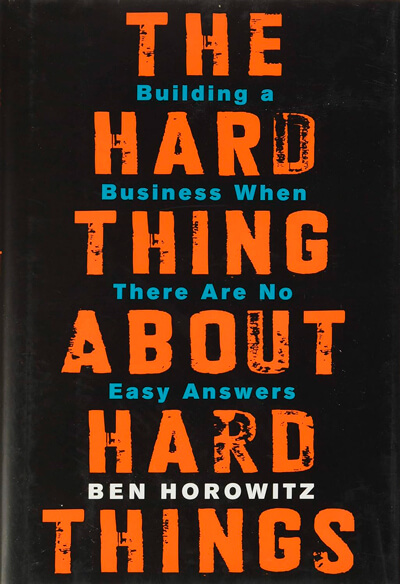
11) Best book for new managers who are founders: Ben Horowitz's "The Hard Thing About Hard Things"
| Author | Ben Horowitz |
| Book Title | The Hard Thing About Hard Things |
| Year published | 2014 |
| Number of pages | 304 |
| Who it's best for | Founders, CEOs, and entrepreneurs leading startups and looking for tactical leadership advice and stories they can uniquely relate to |
| What you will learn | How to manage crises, care for employees, architect communication, and embody the resilient mindset of a successful startup founder/CEO |
If you're starting a company, are a CEO, or are thinking about building a business, you need to read this book.
In The Hard Thing About Hard Things, Horowitz shares the incredible story of his time as a founder. He recalls how he survived a tanking stock, failed launches, and problematic acquisitions to ultimately build a billion-dollar company. Throughout it all, he figured out how to keep the company alive and take care of his employees as best he could.
There are key lessons throughout the book, including:
- The importance of one on ones as part of your organization's communication architecture
- Managing through a crisis, no matter how bleak
- And what it takes to be a startup founder/CEO that wins
The book will also help with your mindset as a leader, and give you some tactical approaches you can use to make your company better.
Further reading: We've quoted Horowitz in many of our posts. Here's one of our favorites:
- Ben Horowitz on the importance of organizational communication: Everything you need to know about organizational communication from the experts
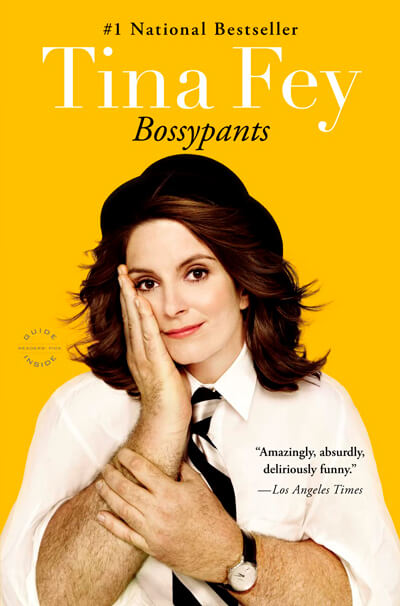
12) Best book for new female managers: Tina Fey's "Bossypants"
| Author | Tina Fey |
| Book Title | Bossypants |
| Year published | 2011 |
| Number of pages | 275 |
| Who it's best for | For new female managers, seeking an entertaining yet insightful leadership memoir, and male leaders who want to better understand the female perspective. |
| What you will learn | How to balance career ambitions with responsibilities of family life; the importance of setting boundaries; advocating for yourself in the workplace |
For our final book, a quick and entertaining read by comedian and writer, Tina Fey. Bossypants chronicles her journey from SNL comic to head writer and finally showrunner of 30 Rock.
In the book, she shares the challenging push and pull she felt as she got married and started a family, while her career took off. While you're laughing all the way through you also see the poignant, important moments that many families and working mothers face.
If you're a woman, and especially a mother, you'll appreciate the laughs, but also see you're not alone in those feelings. For everyone else, this is a funny, quick read that can help you empathize better with the women you manage and work with every day.
Use these leadership books for new managers to speed up their development
The right book (or books) can start a new manager off on the right foot, especially if they don't have a mentor to guide them.
In fact, a good book can often feel like you have someone sitting there working with you one-on-one, mentoring you through the process of learning to lead a team.
It can give you or your new managers the guidance they need to start shifting the way they think about their role and help them develop a growth mindset.
Whether it's one or multiple of the books we mentioned above, consider getting these titles to help a new manager you know start their own journey to being a great leader.
Looking for more ways to develop your team other than the best leadership books for new leaders?
Check out more great posts from the Lighthouse blog to help level up you and other leaders you know:
- 8 Best Professional Development Goals for Managers
- 4 Types of Managers Employees Love to Work for (and Why)
- 4 Reasons Why Your Leadership Skills Aren't Improving (And How to Change That)
- How to Become a Senior Leader in 5 Key Steps
- 6 Key Questions to Ask When Managing a New Team
Are you growing as a leader? Are you building the skills you need?
Get better as a leader every day with our bite-size leadership training programs, Lighthouse Lessons. Purpose built for busy managers like you, they help you become a better leader by mastering the skills that bring out the best in your team. You can learn more and sign up here.
